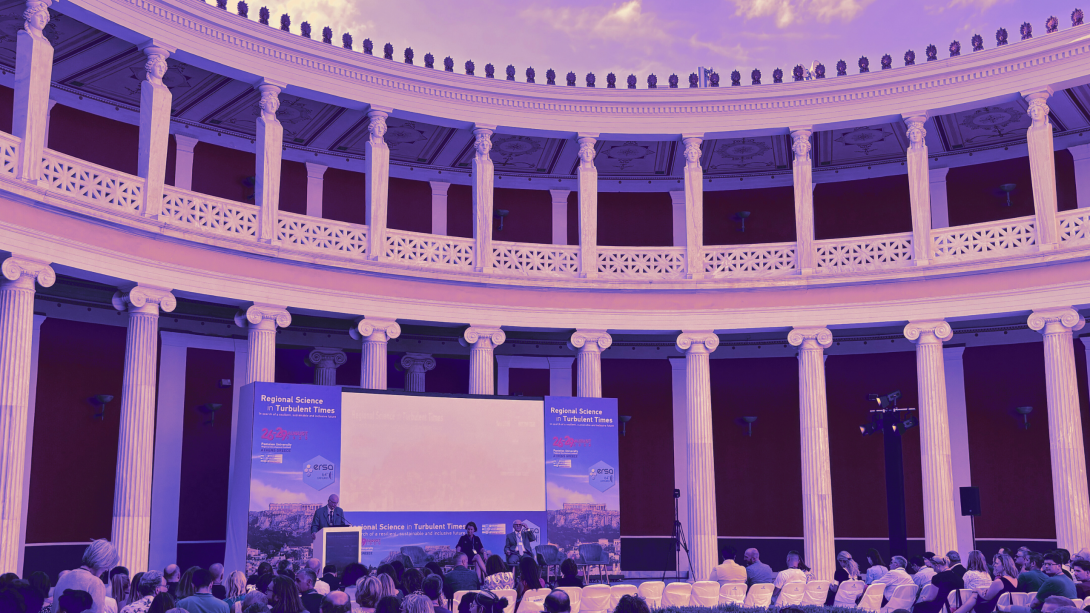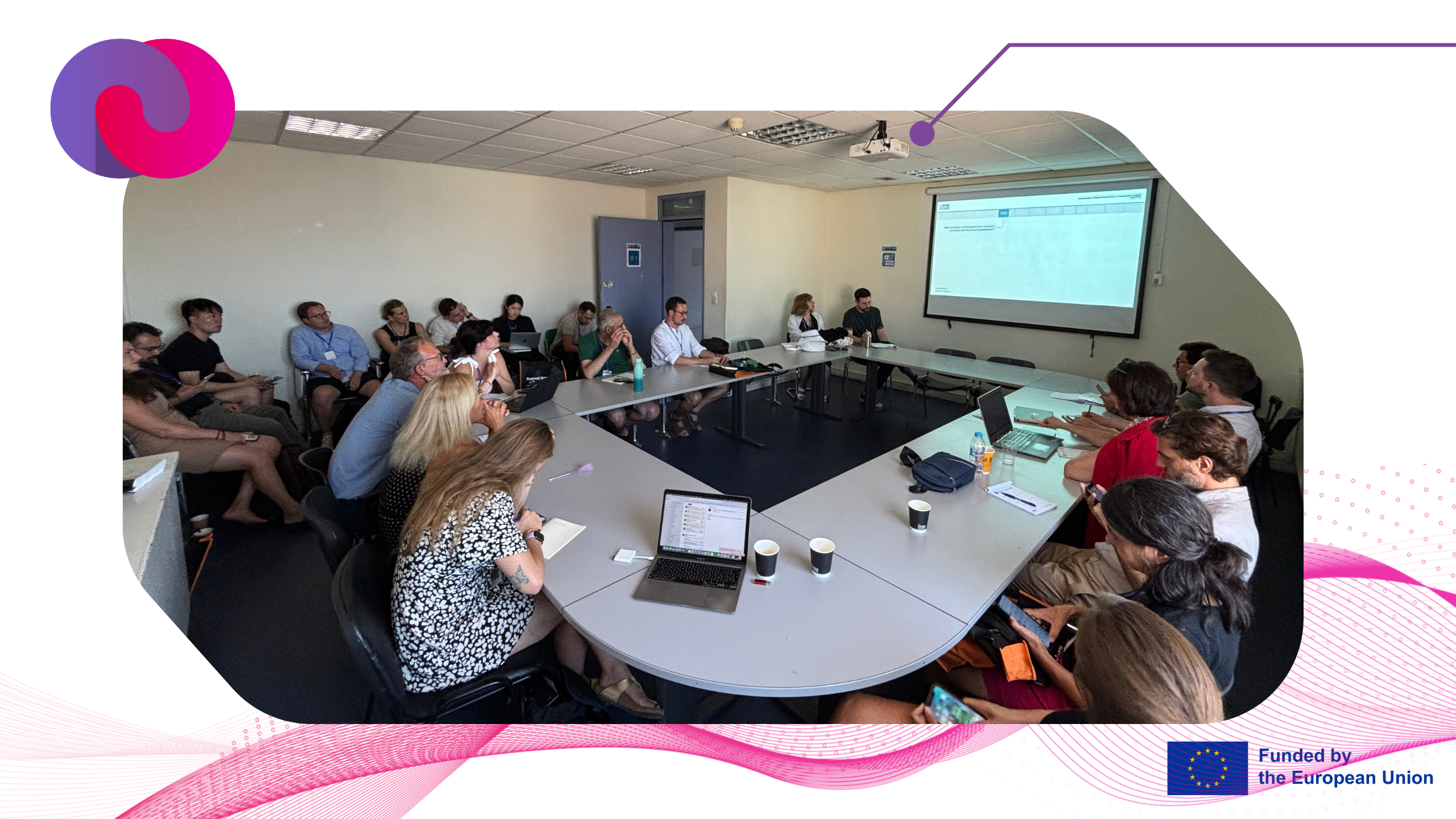FutuResilience at the 64th ERSA Congress in Athens
4 September 2025

The 64th ERSA Congress took place in Athens from 26 to 29 August, marking the first fully in-person annual meeting since the pandemic. The main theme – “Regional Science in Turbulent Times: In Search of a Resilient, Sustainable and Inclusive Future” – directly addressed the challenges faced by people and places today, and explored how Regional Science can reflect on and respond to them.
The conference featured general sessions covering topics such as territorial resilience, competitiveness, innovation and entrepreneurship, infrastructure, and migration, as well as special sessions dedicated to research projects discussing core issues in regional science, sustainability, and resilience.
Throughout the event, discussions deepened and expanded research on building a resilient future. General sessions explored, for example, the role of citizens in preparing for climate-related crises, using case studies from around the world. Migration and unemployment shocks affecting vulnerable populations were another key theme, while inclusion and gender were highlighted as critical factors for regional development. Discussions examined spatial dependencies, gender politics, and environmental sustainability, and considered how gender-sensitive approaches can act as catalysts for positive change.

The FUTURESILIENCE project organised a special session, “Strengthening Societal Resilience through Policy Experimentation, Foresight and Participatory Approaches” which brought together contributions from the project, the invited CLIMAS project, and external speakers. The session focused on addressing disruptions related to health, climate, and migration, sharing practical approaches and insights.
- The BAPEMED Lab – presented by Martin Kruse (Copenhagen Institute for Futures Studies) – explored the key challenges facing Bulgaria’s healthcare system, including rising healthcare costs, budgetary strain, and system fragmentation. Co-creation processes identified solutions centred on efficiency, prevention, and digital health integration.
- The MURCIA Lab – presented by Matias Nieto Tolosa (Universidad Politécnica de Cartagena) – showcased neighbourhood-scale adaptation strategies for southern Spain, tackling the rising risk of flooding and intensifying urban heatwaves. The study identified vulnerabilities and proposed strategies to support government action.
- The CHIOS Lab – presented by Asimina Christoforou (Regional Development Institute, Penteion University) – shared findings on strengthening migration governance and building local capacity to respond to future migration flows. Co-creation activities with local stakeholders informed policy actions to improve governance, enhance working and living conditions for both locals and migrants, and foster social integration and mutual respect.
The session also included insights from FUTURESILIENCE cross-learning activities – presented by Chiara Lodi (University of Urbino) – which highlighted diverse stakeholder perspectives on societal resilience and emphasised the need for continuous exchange within the ecosystem. Charlotte Freudenberg (Fraunhofer ISI) presented the role of foresight in workshop design, positioning the project methodology as a blueprint for moving from challenge- and crisis-based scenario planning to actionable policy strategies.
Finally, Matias Barberis (EFIS Centre, Project Coordinator) reflected on the role of experimentation in policy design. He outlined how the labs enable a shift from reactive to anticipatory policymaking, foster systemic change through participatory and evidence-based approaches, and enhance policy legitimacy through iterative testing – ultimately supporting a broader culture of societal resilience.
In closing, the congress reaffirmed that resilience must be central to how regions and societies respond to turbulent times. From climate change to migration, today’s challenges are complex, interconnected, and unpredictable. There is an urgent need to equip communities, institutions, and policymakers with the tools to navigate uncertainty, adapt to disruption, and transform vulnerabilities into opportunities. Building resilience is not just about crisis preparedness – it is about embedding inclusion, sustainability, and innovation as guiding principles for the future.
Login to add a new comment